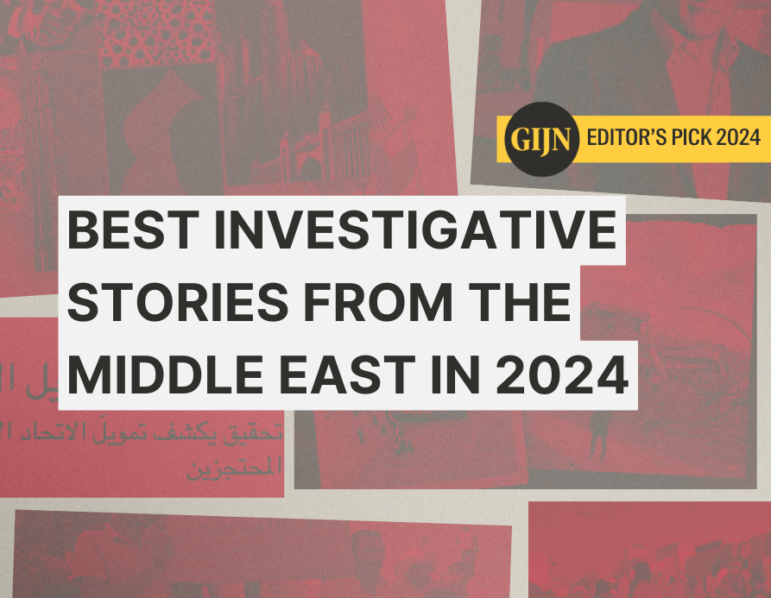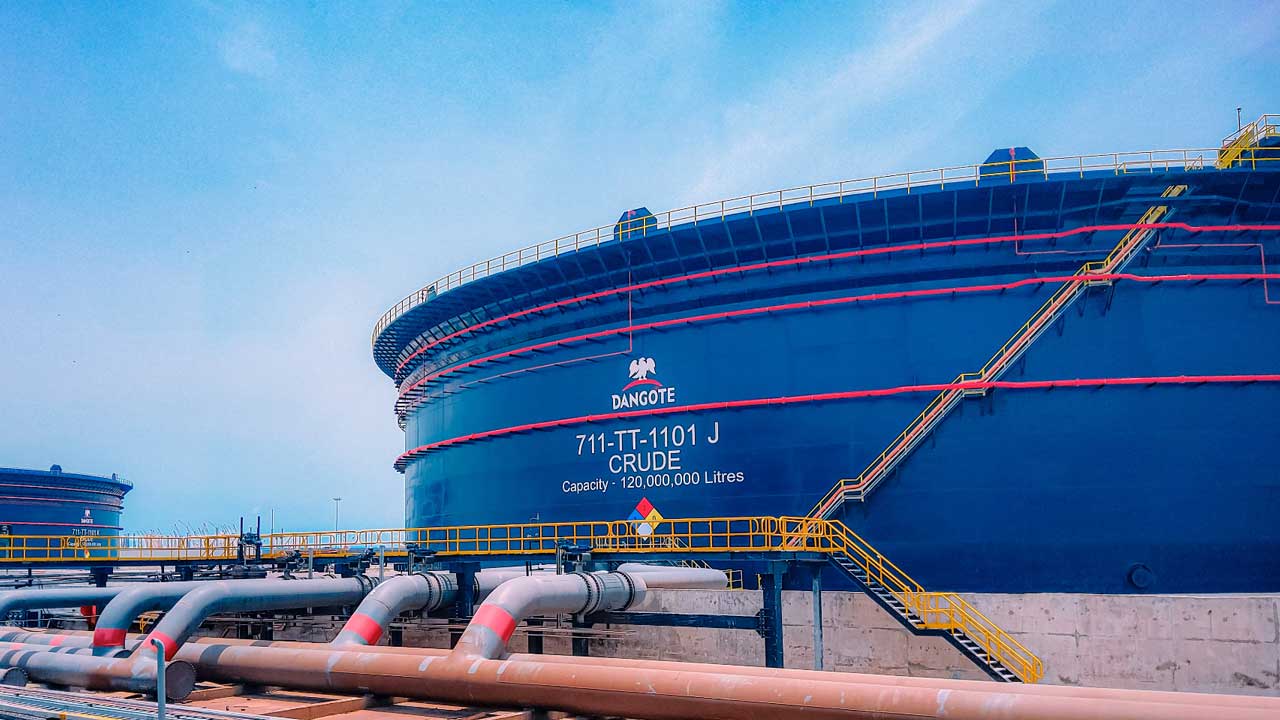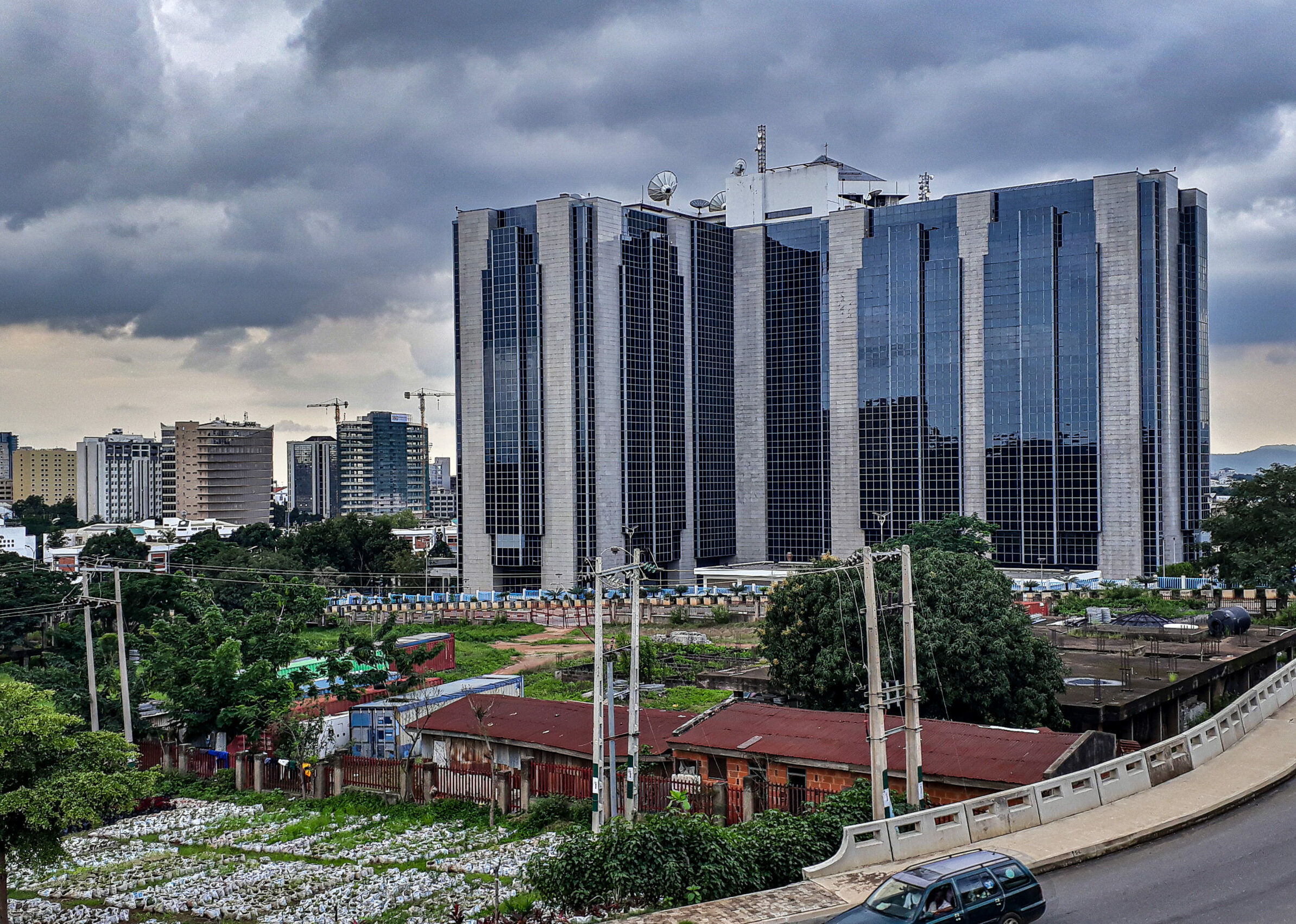

It can be extremely challenging and perilous to work in investigative journalism in a region ravaged by war, where unpredictability, widespread destruction, and tragic loss of life are constants. In December 2023, when GIJN Arabic released its previous Editor’s Picks list, the MENA region had just passed two months since Hamas’ October 7 incursion into Israel and that country’s subsequent invasion of Gaza. A year later, the conflict has spread to the West Bank and Lebanon, with repercussions in Yemen, Iraq, and Syria.
Increasingly, journalists in the region are being caught in the deadly crossfire or, even worse, are being targeted for reporting on the frequent atrocities they are uncovering. At least 137 Palestinian journalists and media workers have been killed by Israeli strikes, according to the latest figures from the Committee to Protect Journalists, which also alleged that at least eight journalist or media worker victims were “directly targeted” by the Israeli military. Elsewhere, one estimate claims that 13 journalists have been killed since April 2023 in the conflict in Sudan and Reporters Without Borders has said it had compelling evidence that journalists in the region have been “deliberately subjected to physical attacks and arbitrary arrests.”
Reporters and media outlets in the region have also been affected by the highly charged political landscape. As a result of the war, some media organizations have shifted their priorities. One GIJN member, ARIJ, an organization that promotes investigative journalism across the Arab world, launched an emergency aid campaign to support journalists in Gaza. In October 2024, the Lebanese site The Public Source, also a GIJN member, shifted its focus from long-form reporting to daily coverage of the conflict in its home country. The war’s impact on investigative journalism has been exacerbated by numerous legal and security challenges, along with limited access to information.
Elsewhere, to avoid retaliation from authorities in Egypt, some journalists have begun publishing their work anonymously. The Tunisian government has further restricted independent media, sending two journalists and a media founder to prison, detaining another media figure, and intimidating private media companies.
Even in this context, investigative journalists and independent media organizations in the region persevere, knowing that the investigations they do have become integral to their survival and viability. In this difficult environment, they have adapted strategies that empower them to do high-quality investigative reporting, using open source research tools and techniques, and conducting collaborative and cross-border investigations that have proved helpful in surmounting the obstacles to field reporting in conflict zones. Publishing in reputable partner outlets outside the region has also mitigated the risks of censorship and retaliation.
Below, we have selected eight investigative stories from the Arab region published in 2024 that stood out for innovation, the quality of documents reporters managed to unearth, for the newly discovered information they impart, and their broader relevance to the public.
The Man Controlling the Rafah Gate

Rafah border gate between Gaza and Egypt. Image: Shutterstock
During the past year, the Rafah border crossing between Gaza and Egypt has become a vital corridor for refugees trying to escape the war in Gaza and for those trying to get aid into the besieged enclave. Behind this humanitarian crisis are people paying “exit coordination fees” to help their relatives flee, and aid agencies that need vehicles to transport their goods. According to this Mada Masr investigation, a key figure who now wields huge power over this crucial checkpoint is a lone businessman whose companies offer these key services. “Now, everything and everyone that passes into or out of Gaza does so almost exclusively” through his companies or his network of connections, the story reports.
In less than a decade, the reporters found, this businessman has gone from being a former fugitive from justice to the leader of a tribal battalion with sizable business interests and considerable power. Mada Masr obtained a number of documents and spoke with well over a dozen sources — from Palestinian refugee handlers to Sinai tribespeople to Egyptian workers from his own companies — to document how he built his empire. The story is a fascinating deep dive into how one man has ended up with considerable power and influence — and therefore able to control the fates of so many lives in the Gaza Strip.
Gaza Project
This multi-team collaborative project — featuring 50 journalists from 13 organizations, including Forbidden Stories, Der Spiegel, Le Monde, the Guardian, and ARIJ — investigated the killings of journalists and systematic destruction of press infrastructure in Gaza by Israel during the region’s escalating war since October 7.
To compensate for restricted access to Gaza, the team analyzed thousands of hours of audio, video, satellite imagery, and GPS data to confirm ballistic trajectories and event chronologies. As a result, they were able to document how “at least 14 journalists were wearing press vests at the moment they were killed, injured, or allegedly targeted,” and how media offices had been partially or completely destroyed.
The exposé’s digital evidence was preserved in a shared platform, Atlos, and experts in weapons and ballistics were consulted. As a result of the Gaza Project — which also continued the work of one of the reporters who was killed in the war, and of a pair investigating famine who were forced to displace — global actors were called upon to address the escalating threat to press freedom and the extremely dire conditions that journalists continue to face in Gaza.
(In response to the project — which also investigated how at least 18 journalists have been injured or killed by alleged Israeli drone strikes – the IDF said “the narrative that the IDF is intentionally targeting journalists is utterly unfounded and fundamentally false.”)
Fish for Guns: How the Houthis Trade Yemen’s Most Important Wealth and Food to Iran
This multimedia investigation, produced by Al Aan TV, revealed that the Houthi militia group which is party to one of the region’s most brutal civil wars allows Iranian ships to dredge the seabed in Yemen in exchange for military and political support. As a result, the nation, which had been one of the most prolific fish exporters in the region, has seen the collapse of its local fishing industry.
The report used Automatic Identification System (AIS) marine tracking data to show that more than 300 Iranian vessels were fishing “safely and freely” in Yemeni waters between 2020 and the middle of 2024. Most of the Iranian vessels whose routes were verified had been fishing around the Socotra archipelago, more than 550 kilometers from Yemen’s coast in an area that has become difficult for local Yemeni fishermen to access, especially during the war. The remote location also makes it almost impossible for the Yemeni Coast Guard to track these vessels at sea and hold them accountable for plundering the country’s fisheries.
As Famine Looms in Sudan, the Hungry Eat Soil and Leaves
This Reuters investigation, led by journalist Maggie Michael and featuring visuals by El Tayeb Siddig, examined how Sudan’s civil war has driven millions toward famine with little global attention. As the Sudanese Army and the Rapid Support Forces (RSF) intensify their conflict in Darfur, aid is systematically looted or blocked. Families in overcrowded camps are subsequently forced to eat dirt and tree leaves to survive, with entire communities at risk of starvation and disease.
The investigation further exposed how starvation is being weaponized by both warring factions, depriving civilians of essential resources and leaving nearly five million people threatened with famine as the destruction of agricultural resources and looting of aid warehouses compounds the devastation caused by conflict.
To piece together this crisis, the team interviewed over 160 civilians, consulted with aid workers, and analyzed food security surveys. In addition, the story includes testimonies from affected families and serves as a powerful call to action to address Sudan’s “forgotten war.”
US Mercenaries in Yemen, Hired by UAE
This documentary by the BBC Eye’s Arabic investigative team revealed troubling evidence of military operations in Yemen carried out by US mercenaries and allegedly financed by the United Arab Emirates (UAE), including the apparent assassination of Yemeni political figures the UAE viewed as a threat. According to the BBC’s remarkably candid interviews with the mercenaries themselves, whistleblower testimony, and leaked documents, private US security personnel carried out an initial set of assassinations and then trained Emirati and Yemeni forces to carry out later executions, leading to a spike in targeted strikes.
Interviews with mercenaries involved in the assassinations and paperwork leaked to human rights investigators revealed financial connections between the UAE and the private security company. Critical information was also provided by human rights groups and whistleblowers, who described how executions were carried out by Emirati-trained agents after the American mercenaries departed. In a response to the filmmakers, the UAE said the Yemeni government and its allies had asked for support in counter-terrorism and that it was not true to suggest the UAE had targeted individuals “with no links to terrorism.”
The BBC produced several noteworthy investigations from the region this year. See also their investigation into the rise in “extremist” Israeli settlers taking land in the West Bank.
Deportation of Tunisians from Italy: The Hidden Collusion of Airline Companies
Inkyfada and Internazionale conducted a joint investigation into the ways that Tunisian migrants who have been denied the right to remain are deported from Italy “in secret and out of sight” by using private charter flights. According to the reporting, these secret removals circumvent regular commercial flight procedures to avoid scrutiny.
The investigation zeroed in on one private Italian airline and other supporting companies given the contracts on behalf of the government — diving into the opaque documentation and secrecy surrounding the contacts. To document the story, the team used deportees’ certificates, cross-referenced analysis of flight tracking platforms and airport websites, requested official documents from the Italian authorities, and accumulated first-hand testimony from deported migrants.
“The easiest and most effective way to kick someone out of the European Union is to put them on a plane and send them back to where they come from,” the reporters wrote. The result is a network of companies that “benefit from a system that is still somewhat hidden.”
Inside Turkey’s EU-Funded Deportation Machine
In recent years, as Turkey’s economy has struggled and anti-refugee sentiment has risen, hundreds of thousands of Syrians and Afghans have been expelled. An investigation by Lighthouse Reports, in collaboration with the Syrian outlet Al-Jumhuriya, New Lines Magazine, El País, Der Spiegel, Politico, Etilaat Roz, SIRAJ, NRC, L’Espresso, and Le Monde, looked at the forces that have made that possible, examining how the country has created “one of the largest migrant detention systems in the world,” with the help of European Union funding.
To complete the story, journalists spoke to more than 100 sources, including dozens of detainees who had been held in EU-funded deportation centers, as well as Turkish, Syrian, and Afghan officials, EU diplomats, and even former deportation center staff. The detainees told of poor conditions, systemic violence, and being forced to sign “voluntary” return forms, a series of claims that were corroborated by a comprehensive review of visual evidence, court rulings, and hundreds of pages of EU documents. In addition, the team took photographs of EU-funded equipment being deployed in Turkey to conduct mass arrests and to transport refugees back to Syria.
Dubai Unlocked
This investigation by the Organized Crime and Corruption Reporting Project (OCCRP), in collaboration with more than 70 international investigative outlets including Daraj Media from Lebanon, revealed how the Gulf state has become a global safe haven for illicit wealth, connecting a web of criminality, corruption, and financial secrecy. Through a vast trove of leaked data, the investigation uncovered how numerous powerful figures leverage Dubai’s relaxed financial oversight regulations to buy property in a place with a reputation as a “playground for the world’s rich and famous.” OCCRP’s findings dig into how new residents include alleged money launderers and drug lords, political figures ensnared in corruption investigations, and controversial business people.
Working with leaked property records obtained by the Center for Advanced Defense Studies (C4ADS), a US-based nonprofit, reporters also conducted interviews with insiders and cross-referenced public financial documents with international data sources. The investigation also relied on advanced data analysis tools to sift through the large volumes of information and map the networks of illicit financial flows.
Officials from the United Arabic Emirates — including the Ministries of Interior, Economy, and Justice — and Dubai Police did not respond to detailed questions, but the country’s embassies in the UK and Norway sent a brief response to reporters, saying that the country “takes its role in protecting the integrity of the global financial system extremely seriously.”
 Majdoleen Hasan is GIJN’s Arabic editor and a three-time award-winning journalist with more than a decade of experience. She has worked with local and international media organizations, including Global Integrity, 100Reporters, and the Arab Reporters for Investigative Journalism network. She was the director of an investigative journalism unit in Jordan and was the first Jordanian citizen to file a case against the Jordanian government for denying her the right to access public information according to an access to information law. Hasan has an MA in political science and a BA in journalism.
Majdoleen Hasan is GIJN’s Arabic editor and a three-time award-winning journalist with more than a decade of experience. She has worked with local and international media organizations, including Global Integrity, 100Reporters, and the Arab Reporters for Investigative Journalism network. She was the director of an investigative journalism unit in Jordan and was the first Jordanian citizen to file a case against the Jordanian government for denying her the right to access public information according to an access to information law. Hasan has an MA in political science and a BA in journalism.
 Feras Dalatey is GIJN’s associate Arabic editor. He is a Syrian investigative journalist, based in Dubai, who focuses on OSINT reporting and digital investigations. He is also a long-form analyst and columnist writing about regional politics, media monitoring, internet culture, and intersections of technology with policy-making, especially in the Arab region. His work has appeared in Daraj Media, Al-Jumhuriya, Alpheratz Magazine (New Lines Arabic Edition), Ultra Sawt, Misbar, and others.
Feras Dalatey is GIJN’s associate Arabic editor. He is a Syrian investigative journalist, based in Dubai, who focuses on OSINT reporting and digital investigations. He is also a long-form analyst and columnist writing about regional politics, media monitoring, internet culture, and intersections of technology with policy-making, especially in the Arab region. His work has appeared in Daraj Media, Al-Jumhuriya, Alpheratz Magazine (New Lines Arabic Edition), Ultra Sawt, Misbar, and others.











